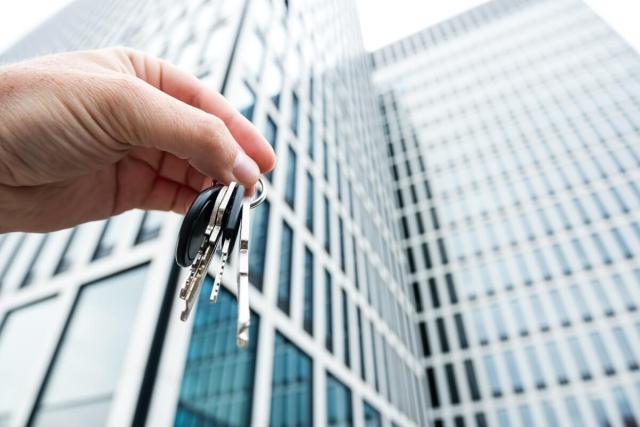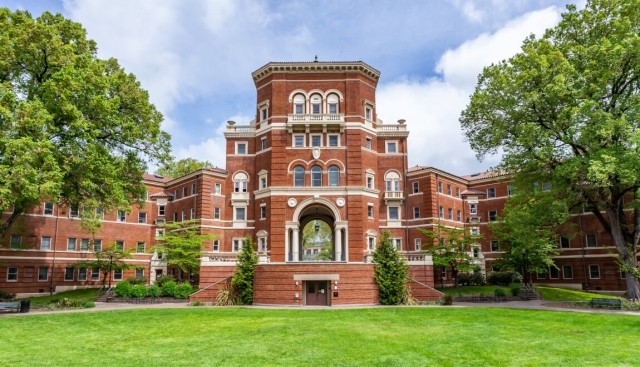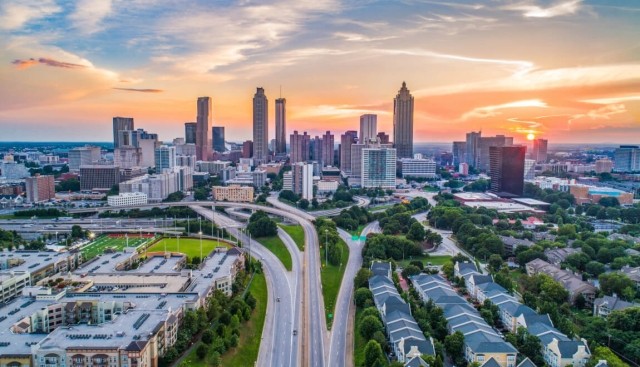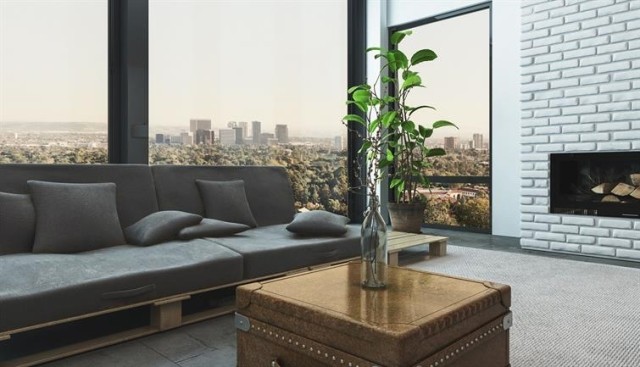You've searched online, toured numerous apartment units, and narrowed it down to a few top contenders. At this point in your apartment search, you’ve probably already asked a lot of general questions. How much is the rent? How long is the lease? Are utilities included?
These questions are a great place to start. However, once you’re serious about a place, they should be followed by even more questions that paint a better picture of your potential new home. Whether you’re curious about subleasing policies or maintenance request procedures, now is the time to learn everything you can about your apartment before signing on the dotted line.
In this article, we’ll list 20 questions to ask before leasing an apartment. Here’s a breakdown of what we’ll cover:
- How Do I Pay Rent, and How Are Late Fees Assessed?
- Under What Circumstances Will You Enter My Apartment Without Notice?
- What Is the Community's Guest Policy?
- Where Will I Park My Car?
- How Far in Advance Do I Need to Give Notice Before Moving Out?
- Can I Sublet the Apartment, and If Not, What Is the Penalty for Breaking My Lease?
- Can I Make Changes to the Apartment, and Will There Be Costs Involved?
- Are There Plans to Make Any Updates to the Apartment Community?
- What Are My Options for Lease Renewal?
- Are Any Utilities or Services Covered in the Cost of the Rent?
- Under Which Circumstances Will My Security Deposit Not Be Refunded?
- How Do You Handle Emergency Repairs?
- What Is the Process for Reporting Maintenance Issues?
- Are There Any Noise Restrictions or Quiet Hours?
- What Is the Policy on Rent Increases?
- Does This Apartment Have Any Pest Problems?
- Is Rental Insurance Required?
- Are the Locks Changed Between Tenants, and Who Has Access to the Keys?
- What Is the Average Cost of Monthly Utilities?
- What Is the Pet Policy?
1. How Do I Pay Rent, and How Are Late Fees Assessed?
These days, nearly every apartment community has at least one electronic option for paying rent. Take Apartments.com, for example. Our renters can use Apple Pay or Google Pay to make monthly rent payments. These digital wallet options allow for punctual payments with better security, enhanced user experience, and streamlined expense tracking through digital payment trails. When inquiring about these electric options, you should also ask about any transaction fees. While Apple Pay doesn’t charge additional fees, Google Pay imposes a 2.75% charge for online transactions.
If it makes more sense for you to pay the old-fashioned way, make sure you understand your landlord’s grace period and late fee policies. Just in case your check gets delayed or lost in the mail, you’ll want to make sure you have plenty of time to still make rent. So, ask about grace periods and imposed late fees to determine which payment methods work best for you.
2. Under What Circumstances Will You Enter My Apartment Without Notice?
While you may not own the apartment, that doesn't mean your landlord or property manager should be able to enter your home any time they please. Most lease agreements will outline protocols for apartment inspections, including how often they’ll take place throughout the lease and what they will entail. However, you should still clarify whether there are any circumstances where your landlord or property manager might arrive unannounced. You can then cross-check these policies with your state laws to ensure they align.
3. What Is the Community's Guest Policy?
If you anticipate having overnight guests, ask your apartment manager or landlord about their guest policy. Most communities have policies against guests staying longer than two weeks. Any guest staying longer than two weeks is considered a “long-term guest” and may need to be added to the lease under community guidelines.
4. Where Will I Park My Car?
Inquiring about parking is important before you rent an apartment. Does your rent include access to one or more parking spaces? Are these spaces reserved? Or are they in an open parking lot or parking garage? If parking isn’t provided, what are the alternatives? Street parking? Nearby garages? Be wary if your landlord or property manager lists street parking as the primary option. Though they might say it’s free and easy to find, it’s often tougher than expected.

5. How Far in Advance Do I Need to Give Notice Before Moving Out?
Moving again will probably be the last thing on your mind when signing a new lease. However, it’s important to consider before contractually committing to an apartment. Whether you anticipate re-signing at the end of the term or moving elsewhere, ask your landlord about their non-renewal notice policy. Usually, landlords will require a non-renewal notice at least 30-60 days before the end of your lease. Knowing this ahead of time will help you plan accordingly and avoid any potential penalties.
6. Can I Sublet the Apartment, and if Not, What Is the Penalty for Breaking My Lease?
You never know when your job or personal life could require you to move on short notice. In the event that you need to move out before your lease is up, it’s good to know your options. Ideally, you’d sublease your unit to a new tenant who will take your place for the remainder of your lease. However, some landlords or property managers may not allow this, so it’s crucial to ask about their policy up front. If you do break the lease, find out what the penalties are and if there is any room for negotiation.
7. Can I Make Changes to the Apartment, and Will There Be Costs Involved?
Putting your own personal touch on an apartment may seem harmless, but it can sometimes cost you. Whether painting the walls or hanging pictures, it’s important to ask permission before making major modifications. While some landlords or property managers won’t mind, others might enforce a fee or keep your security deposit for customizations. Asking about this up front will tell you how much or little you can change upon moving in.
8. Are There Plans to Make Any Updates to the Apartment Community?
As a tenant, you should always be aware of upcoming updates to your unit or apartment community. However, some landlords or properties won’t disclose these projects unless you inquire. Before signing on the dotted line, ask if any construction projects are on the horizon for the property or individual units. This is important for two reasons: 1) If improvements are being made, you may have to deal with noise disturbances from construction. 2) Updates could add to the amenities, enjoyment, and appeal of your apartment.
9. What Are My Options for Lease Renewal?
If you anticipate staying in your apartment for the long haul, make sure to ask about lease renewal. Though you might not have to renew for another year or so, you should be aware of your options once the time comes. Maybe the landlord plans to vacate the property for renovations, or perhaps they want to sell it altogether. In these cases, renewing might be off the table entirely. Make sure to know what’s in store for your rental and how it will affect your lease renewal down the road.
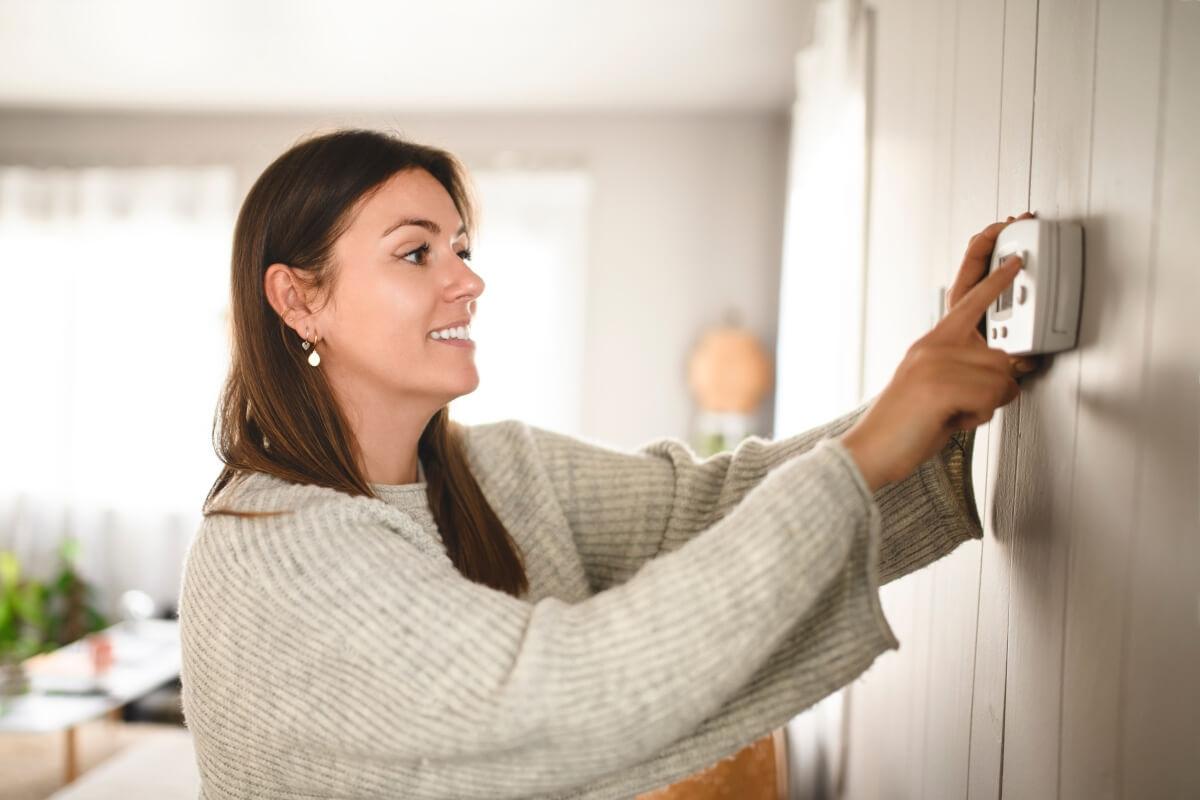
10. Are Any Utilities or Services Covered in the Cost of the Rent?
Before you can budget for an apartment, you must know what exactly is covered in your rent. In some cases, landlords or apartment communities will group utilities with your monthly rent. This usually means less spending for you, as you won’t have to worry about utility deposits, transfer fees, or extensive increases based on usage. However, if utilities are separate, you’ll need to pay the upfront costs of setting them up and anticipate any potential spikes in usage.
11. Under Which Circumstances Will My Security Deposit Not Be Refunded?
Security deposits are an important topic of discussion before renting an apartment. While you’ll most likely get your deposit back, there are a few ways you could lose it. Ask your landlord or property manager about their guidelines for property care. With their expectations in mind, you can minimize wear and tear throughout your lease and increase your chances of getting your deposit back in full.
12. How Do You Handle Emergency Repairs?
Emergency repairs are stressful for tenants and landlords alike. If a pipe suddenly bursts or the A/C randomly cuts off, you’ll want to know you’re in good hands. Ask your landlord or property manager about their emergency repair protocols. Do they have an on-call maintenance team? Will they reimburse you for necessary repairs done by a third-party during off-hours? These are important things to ask before moving into an apartment.
13. What Is the Process for Reporting Maintenance Issues?
Maintenance procedures will vary from rental to rental. Some apartments might require you to submit maintenance requests through an online portal, while others might prefer direct phone calls or emails. If you’re dealing with an independent landlord, they’ll probably have their own unique process with varying response times. The important thing for you to understand is how to submit maintenance requests and how quickly they’ll be addressed.
14. Are There Any Noise Restrictions or Quiet Hours?
If you work from home or are extra sensitive to loud noises, consider asking about community quiet hours. Most apartments have noise restrictions that minimize the risk of loud neighbors and other disturbances. Find out what these specific rules are and how noise complaints are handled to ensure a quiet, undisturbed living environment.
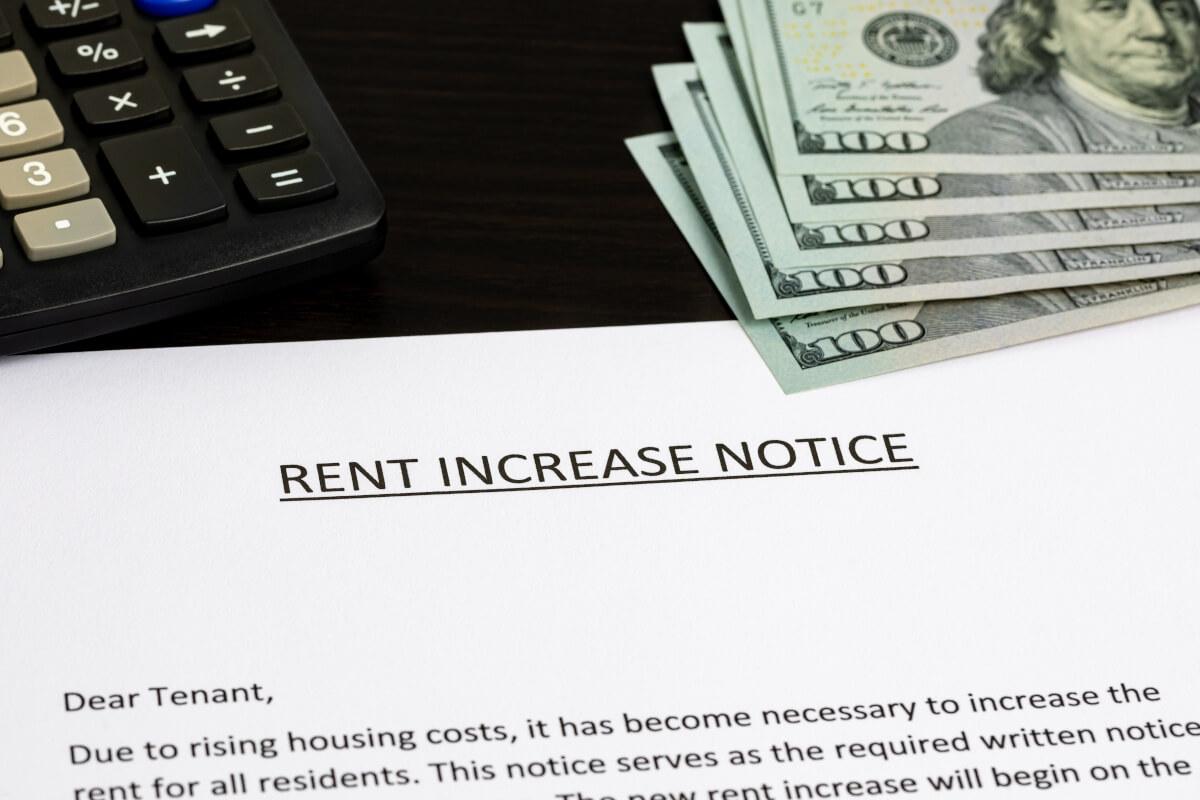
15. What Is the Policy on Rent Increases?
Whether you like it or not, rent increases are a reality of renting an apartment. Before signing a lease, ask your landlord or property manager about their policies up front. While most landlords will notify you before increasing rent, that doesn’t mean they’ll include this information in the lease agreement. Ask about what factors influence rent increases and if there are limits on how much they can increase it. Doing so will give you a good idea of what to financially expect at the start of a new lease term.
16. Does This Apartment Have Any Pest Problems?
If your building is older, pet-friendly, or located near a body of water, it’s a good idea to ask about pest issues. Ask your landlord if rodents, bed bugs, fleas, roaches, and other pests have ever been a problem in the past and what pest preventive methods are used to treat them. Most apartment buildings will conduct routine pest control each month. This service will be covered in your rent but if you need additional pest control beyond the routine service, find out who will be responsible for payment.
17. What Insurance Do I Need if I am Renting?
Whether it’s required or not, every renter should have renters insurance to protect themselves from events out of their control. That being said, you should still ask your landlord if it’s required in the lease and make sure that your insurance plan is adequate. If you don’t have renters insurance, ask for recommendations for insurance agents or companies to make the process as smooth as possible.
18. Are the Locks Changed Between Tenants, and Who Has Access to the Keys?
Locks and keys should always be changed between tenants. If the landlord can’t confirm the locks were changed, be wary of the property. If they can, follow up by asking about the keys to your unit. Your landlord should give you a key and a spare. Then, there should be an extra key in a secure location that only your landlord can access for emergencies and maintenance requests. In addition to these keys, there may also be a master key in a secured location. Clarify who has access to the master key and under what circumstances.
19. What Is the Average Cost of Monthly Utilities?
One of the key questions to ask when renting an apartment for the first time is about utility costs. Whether you’re moving from a different city or into a bigger place with more roommates, utility expenses can vary based on location and usage. Your landlord should be able to give you an estimated price that will help you calculate your rental budget, especially if the utilities are included in the rent and charged as a flat fee each month.

20. What Is the Pet Policy?
If you plan to live with a furry, four-legged roommate, make sure to ask about pet policies. Inquire about any fees associated with having a pet, including pet rent, pet deposits, and/or pet fees, as well as restrictions pertaining to breeds, species, and number of pets allowed. Additionally, ask if there are any pet-friendly amenities like walking trails or grooming stations. These amenities could make your pet’s life – and yours – a lot more comfortable as you adjust to a new space.
There’s a lot of ground to cover before you sign a lease, so it’s important to prepare a thorough list of questions to ask when viewing a new apartment. Whether you’re concerned about parking or pet-related issues, asking the right questions will minimize misunderstandings after move-in and make your new apartment living experience a great one.
This article was originally published on September 23, 2019, by Jake Margle.
FAQs
How do I prepare for an apartment tour?
To prepare for a tour, create a list of things to ask before moving into an apartment. This should include questions about the building’s pet policy, parking procedures, subleasing rules, and more. Ask these questions throughout the tour and take notes when needed. If there are some questions the touring agent can’t answer, ask the property manager or landlord after your tour is over.
What are important questions to ask when renting an apartment for the first time?
Some important questions to ask when renting an apartment for the first time include asking about security deposit policies, lease renewal options, and if there are any noise restrictions or quiet hours. You should also inquire about utility costs, rental insurance requirements, and pet policies.
Who can answer my questions about renting?
A leasing agent, property manager, or landlord should be able to address your questions. Since leasing agents typically work for the landlord or management company, it's best to direct manager-specific inquiries to the property manager or landlord directly. Be sure to get clear answers to all your questions before signing the lease agreement.
Should I get answers to my questions in writing?
Email your questions to potential landlords or property managers to maintain a clear digital record. This ensures you have documented answers should any discrepancies arise. Even if your questions are addressed in person during an apartment tour, it’s wise to follow up with an email. This allows the landlord or leasing agent to provide a written summary of their responses for your reference.


